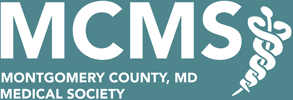
3 Upcoming CMS Deadlines & Changes
1. MIPS 2020 Hardship Exception Deadline – Apply by December 31st
2. The Stark Law: Historic Changes to Physician Self-Referral Regulations
With this final rule, CMS has updated regulations interpreting the Stark Law to allow for changes that will help modernize the healthcare system. The rule finalizes many of the proposed policies from the notice of proposed rulemaking issued in October 2019, including:
- Finalizing new, permanent exceptions for value-based arrangements that will permit physicians and other health care providers to design and enter into value-based arrangements without fear that legitimate activities to coordinate and improve the quality of care for patients and lower costs would violate the physician self-referral law. This supports CMS’ broader push to advance coordinated care and innovative payment models across Medicare, Medicaid, and private plans.
- Finalizing additional guidance on key requirements of the exceptions to the physician self-referral law to make it easier for physicians and other health care providers to make sure they comply with the law.
- Finalizing protection for non-abusive, beneficial arrangements that apply regardless of whether the parties operate in a fee-for-service or value-based payment system – such as donations of cybersecurity technology that safeguard the integrity of the health care ecosystem.
- Reducing administrative burdens that drive up costs by taking money previously spent on administrative compliance and redirecting it to patient care.
Unless otherwise specified in the rule, all of the provisions in this rule will go into effect 60 days from the rule’s display date in the Federal Register. Learn more.
3. CMS Will Retire the Original Compare Tools on December 1st
In early September, the CMS released Care Compare on Medicare.gov, which streamlines eight original health care compare tools. Since then, users have had access to Care Compare and the original compare tools. The eight original compare tools – like Nursing Home Compare, Hospital Compare, Physician Compare – will be retired on December 1st, ending this transition period. CMS is asking that physician practices:
- Encourage people with Medicare and their caregivers to use Care Compare. Go to Medicare.gov and choose “Find care”.
- Update any links to the eight original care tools on public-facing websites so they’ll direct audiences to Care Compare.
Care Compare offers a streamlined interface to patients and caregivers in one user-friendly place to find cost, quality of care, service volume, and other CMS quality data to help make informed health care decisions.
Related Resources:
- Care Compare on Medicare.gov
- Provider Data Catalog on CMS.gov
- Care Compare resources for consumers – Medicare blog, Promotional video, Conference card
